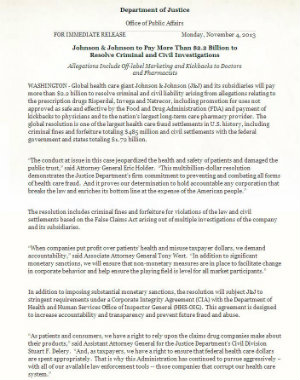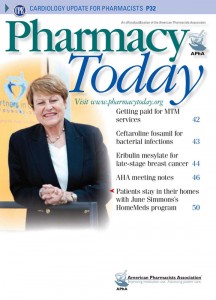The J&J Settlement and the Problem of Rampant Antipsychotic Drug Use in Long-Term Care
If you can stay calm while others all about you lose their heads, sometimes it means you just don’t understand the problem. Click on document to read the full Department of Justice press release. Most of the time, being reasonable and understanding and putting yourself in the other fellow’s shoes…
Read full post









